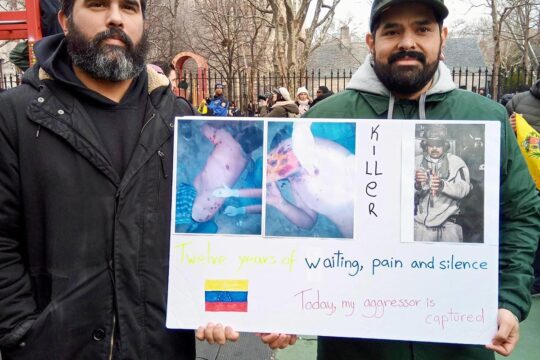Thousands of people embarked Tuesday on a days-long march through a dense Bosnian forest, retracing the harrowing path taken by survivors to mark three decades since the Srebrenica genocide that killed more than 8,000 men and boys.
The annual march to Srebrenica covers a 100-kilometre (62-mile) route from the eastern Bosnian village of Nezuk, where the first survivors arrived after fleeing the unfolding massacre by Bosnian Serb forces.
On July 11, 1995, General Ratko Mladic's forces stormed the Muslim enclave of more than 40,000 people in eastern Bosnia and executed over 8,000 men and boys before burying them in mass graves.
At the time, Srebrenica was a "UN protected zone" -- an ultimately hollow phrase meant to shield the many displaced people who had fled the 1992-1995 war.
On Tuesday, one "survivor of the death march" told AFP he was retracing his steps, along with about 6,000 other marchers.
"For me, the march lasted seven days and eight nights," 65-year-old Amir Kulaglic said. At the time, he was a member of the mostly Muslim Bosnian army.
"All of us who took part in this march had only one wish: to survive and to be reunited with members of our family," Kulaglic said.
Enduring repeated ambushes, bombing and chemical gas attacks from Bosnian Serb forces, he was among the first to reach Nezuk, leading a column that stretched nearly 11 kilometres when it set out.
His father and several other relatives didn't survive the journey.
- 'Never found anything of my father' -
The marchers will reach the Srebrenica Memorial Centre in Potocari, where most victims are buried, on Thursday and will attend a ceremony the following day.
After decades of painstaking work, about 7,000 victims have been identified and properly buried, but about 1,000 remain missing.
The remains of seven victims will be buried during the July 11 commemorations, including two 19-year-old men and a 67-year-old woman.
Another marcher, 37-year-old Elvisa Masic, said she was taking part in the walk to understand what her father and other family relatives had "suffered".
"We found remains, a bone or two, of most of the family members, and they were buried, but we never found anything of my father," she said.
Bosnia's 1992-1995 war, between its Croat, Muslim and Serb communities, claimed approximately 100,000 lives.
An international criminal court sentenced Mladic, now 83, and former Bosnian Serb leader Radovan Karadzic, now 80, to life jail terms for war crimes and genocide.
Both are still incarcerated but a proper reckoning inside the splintered Bosnian states remains overdue.
For Kulaglic, he hopes that soon a new generation of Serbs will properly recognise the crime and seek forgiveness.
"We will forgive, and we will try to build a new Srebrenica, a city of peace, tolerance and mutual respect."


